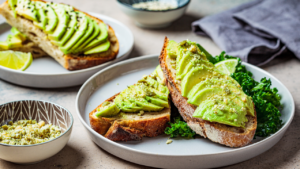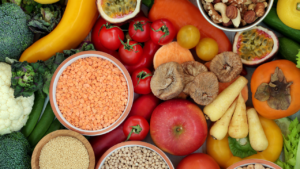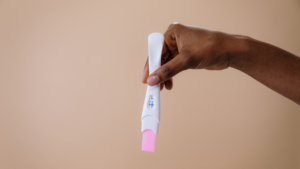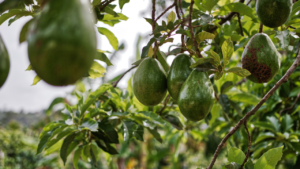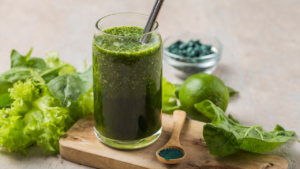Key Factors in Probiotic Benefits for Men: 5 Crucial Insights
This article delves into the effectiveness of probiotics for men, emphasizing the need for strain-specific, dosed, and tailored approaches based on age, lifestyle, and individual response. Studies showcase that differing strains and formulations play critical roles in various health outcomes, including gut health, immune enhancement, and even responses to physical exercise. Furthermore, certain probiotics are linked to improvements in male fertility. The article argues for personalized probiotic interventions to optimize individual health benefits effectively.
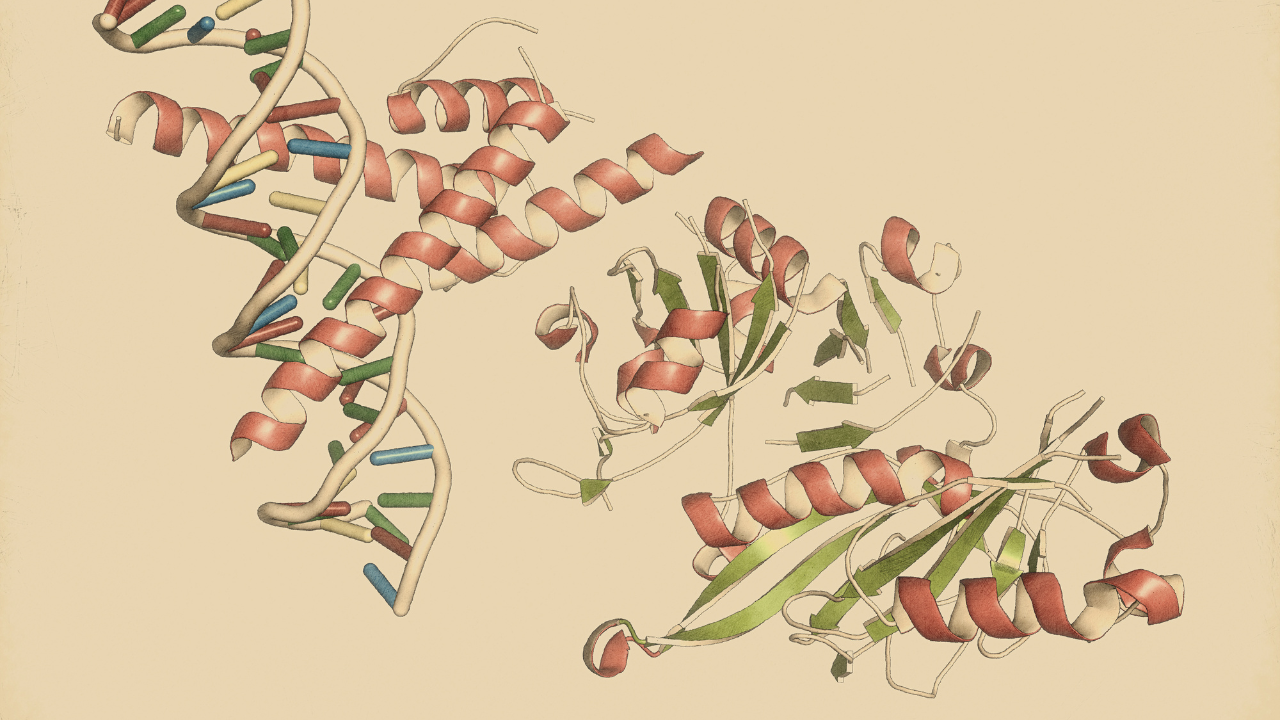
This article explores the specific key factors in probiotic benefits for men, emphasizing the importance of strain specificity and individualized approaches.
It discusses the role of different strains, optimal dosage and duration, lifestyle choices, age-related factors, and individual responses in maximizing probiotic effectiveness for men's health.
Highlight
- Probiotic effectiveness varies with specific strains and health conditions.
- Different strains offer diverse health benefits, including gut health, immunity, and fertility.
- Optimal dosage and duration depend on health conditions, probiotic strains, and individual characteristics.
- Diet and exercise influence gut microbiota, affecting probiotic effectiveness.
- Age and individual variations play a crucial role in the personalized nature of probiotic use.
Factors Influencing Probiotic Effectiveness for Men
Strain Specificity: A Key Factors in Probiotic Benefits for Men
The efficacy of probiotics can be influenced by the specific strain and the targeted health condition, as demonstrated in various randomized controlled trials ✅ Trusted Source
➤ Go to source
Choosing an appropriate probiotic product for your patient: an evidence-based practical guide. Plos One, 13(12), e0209205.
➤ Get "Smart Citations"
(hover to see more details)
.
It's important to note that the effectiveness of probiotics depends on both the host and the particular probiotic strain ✅ Trusted Source
➤ Go to source
Screening of lactic acid bacteria for their use as buffalo probiotic. The Journal of Animal and Plant Sciences, 30(6).
➤ Get "Smart Citations"
(hover to see more details)
.
Therefore, one cannot assume that benefits observed with one strain will apply to others within the same species ✅ Trusted Source
➤ Go to source
Probiotics: facts and myths. Clinical Microbiology and Infection, 11(12), 958-966.
➤ Get "Smart Citations"
(hover to see more details)
.
For instance, Lamprecht et al. conducted a study showing that a multi-strain probiotic was effective in reducing zonulin levels and mitigating post-exercise inflammation in men ✅ Trusted Source
➤ Go to source
Evaluation of probiotics for warfighter health and performance. Frontiers in Nutrition, 7.
➤ Get "Smart Citations"
(hover to see more details)
.
Another study investigated the effects of different probiotic strains on various factors, including body composition, fitness, and inflammation, particularly in long-distance runners ✅ Trusted Source
➤ Go to source
Analysis of the impact of a multi-strain probiotic on body composition and cardiorespiratory fitness in long-distance runners. Nutrients, 12(12), 3758.
➤ Get "Smart Citations"
(hover to see more details)
.
Considering these findings, when it comes to gastrointestinal health in men, the selection of the appropriate probiotic strain becomes crucial due to the variations in probiotic effects ✅ Trusted Source
➤ Go to source
Clinical outcomes of single vs. two-strain probiotic prophylaxis for prevention of necrotizing enterocolitis in preterm infants. Frontiers in Pediatrics, 9.
➤ Get "Smart Citations"
(hover to see more details)
.
Varied Strains and Their Impact on Men's Probiotic Health Benefits
Probiotics offer a range of benefits for men's health, encompassing various aspects.
Firstly, they play a crucial role in promoting intestinal health by regulating the microbiota, stimulating the immune system, enhancing nutrient bioavailability, and even alleviating symptoms of lactose intolerance ✅ Trusted Source
➤ Go to source
Probiotics, their health benefits and applications for developing healthier foods: a review. FEMS Microbiology Letters, 334(1), 1-15.
➤ Get "Smart Citations"
(hover to see more details)
.
Furthermore, their positive influence extends beyond the gut, as probiotics have been proposed to bolster overall health and immunity ✅ Trusted Source
➤ Go to source
Role of probiotics in human gut microbiome-associated diseases. Journal of Microbiology and Biotechnology, 29(9), 1335-1340.
➤ Get "Smart Citations"
(hover to see more details)
.
Additionally, multi-strain probiotics have been found to exhibit synergistic effects, contributing to the treatment of non-infectious diseases, inhibiting harmful pathogens, and improving overall human health ✅ Trusted Source
➤ Go to source
Multi-strain probiotics: synergy among isolates enhances biological activities. Biology, 10(4), 322.
➤ Get "Smart Citations"
(hover to see more details)
.
An intriguing finding is that probiotic supplementation has yielded significant benefits for infertile men, including increased sperm concentration and motility, along with a reduction in oxidative stress and inflammatory markers ✅ Trusted Source
➤ Go to source
Probiotic effects on sperm parameters, oxidative stress index, inflammatory factors and sex hormones in infertile men. Human Fertility, 25(3), 499-507.
➤ Get "Smart Citations"
(hover to see more details)
.
It's worth noting that the efficacy of probiotics varies depending on the specific strains and the diseases they target ✅ Trusted Source
➤ Go to source
Strain-specificity and disease-specificity of probiotic efficacy: a systematic review and meta-analysis. Frontiers in Medicine, 5.
➤ Get "Smart Citations"
(hover to see more details)
.
| Disease Indication | Net ≥ 2 significant RCTs (number of significant RCTs/non-significant RCTs) | At least two RCTs with significant efficacy (number of significant RCTs/non-significant RCTs) |
|---|---|---|
| Prevention Adult AAD | Saccharomyces boulardii 1-745 (11+/6-) Lactobacillus acidophilus CL1285+ Lactobacillus casei LBC80R+ Lactobacillus rhamnosus CLR2 (4+/0)ª L. casei DN114001 (2+/0-) | Enterococcus faecalis SF68 (2+/1-) L. rhamnosus GG (2+/4-) Lactobacillus reuteri 55730 (2+/1-) |
| Pediatric AAD | S. boulardii 1-745 (7+/3-) | L. helveticus R52 + L. rhamnosus R11 (2+/1-) |
| CDI-primary | None | L. acidophilus CL1285 + L. casei LBC80R + L. rhamnosus CLR2 (2+/2-)ª |
| Nosocomial Infections | None | L. rhamnosus GG (2+/2-) |
| Travelers' diarrhea | S. boulardï 1-745 (2+/0-) | |
| Treatment Pediatric acute diarrhea | S. boulardii 1-745 (25+/4-) L. rhamnosus GG (12+/3-) L. reuteri DSN 17938 (3+/0-) L. acidophilus LB (3+/1-) L. casei DN114001 (3+/0-) VSL#3b (2+/0-) Bac. clausii OC/SN/R (3+/1-) | L. helveticus R52 + L. rhamnosus R11 (2+/1-) |
| Irritable bowel syndrome | B. infantis 35624 (2+/0-) L. plantarum 299v (4+/1-) L. rhamnosus GG+ L. rhamnosus LC705 + B. breve Bb99 + Prop. freudenreichii shermanii Jc (2+/0-) | L. rhamnosus GG (2+/2-) S. boulardi 1-745 (2+/2-) VSL#3º (2+/2-) |
| Helicobacter pylori eradication | L. helveticus R52 + L. rhamnosus R11 (4+/1-) | S. boulardi 1-745 (5+/11-) L. reuteri 55730 (2+/2-) L. acidophilus La5 + B. animalis spp. lactis Bb12 (3+/2-) |
| Inflammatory bowel disease | VSL#3b (8+/2-) | S. boulardii 1-745 (2+/1-) |
| CDI-recurrences | S. boulardii 1-745 (2+/0-) |
AAD, antibiotic-associated diarrhea; B., Bifidobacterium; Bac, Bacilus; CDI, clostridium difficile infections; E., Enterococcus; L., Lactobacilus; Prop., Propionibacterium; S., saccharomyces. aIncludes two dose treatment arms from one trial. bVSL#3, a mix of eight strains (B. breve, B. longum, B. infantis, L. acidophilus, . plantarum, L. paracasei, L. debrueckil spp. bulgaricus, and Streptococcs hermophilus).
Dosage and Duration: Crucial Aspects in Men's Probiotic Efficacy
The optimal probiotic regimen for men is a complex subject, with ongoing research and debates.
It depends on factors like health condition, probiotic strain, and individual traits.
Regulatory guidelines stress sufficient dosages, and studies recommend specific durations, like 12-14 weeks, for benefits.
Longer durations are effective in some cases.
Tailoring probiotics to specific populations is vital, requiring a nuanced approach.
In essence, determining the best probiotic regimen involves multiple variables and ongoing research.
Optimal Probiotic Dosage for Enhancing Men's Health
Determining the ideal probiotic dosage for men remains a subject of ongoing research and debate.
Numerous studies have underscored the necessity for further investigation into the most effective dosage and duration of probiotic supplementation ✅ Trusted Source
➤ Go to source
Probiotics for the prevention of antibiotic-associated diarrhea in adults. Journal of Clinical Gastroenterology, 55(6), 469-480.
➤ Get "Smart Citations"
(hover to see more details)
✅ Trusted Source
➤ Go to source
Supplementation of infant formula with probiotics and/or prebiotics: a systematic review and comment by the espghan committee on nutrition. Journal of Pediatric Gastroenterology and Nutrition, 52(2), 238-250.
➤ Get "Smart Citations"
(hover to see more details)
✅ Trusted Source
➤ Go to source
A meta-analysis of probiotic efficacy for gastrointestinal diseases. Plos One, 7(4), e34938.
➤ Get "Smart Citations"
(hover to see more details)
✅ Trusted Source
➤ Go to source
Probiotic supplementation can positively affect anxiety and depressive symptoms: a systematic review of randomized controlled trials. Nutrition Research, 36(9), 889-898.
➤ Get "Smart Citations"
(hover to see more details)
✅ Trusted Source
➤ Go to source
The role of probiotics in preventing allergic disease. Children, 6(2), 24.
➤ Get "Smart Citations"
(hover to see more details)
✅ Trusted Source
➤ Go to source
A critical evaluation of the factors affecting the survival and persistence of beneficial bacteria in healthy adults. Beneficial Microbes, 12(4), 321-331.
➤ Get "Smart Citations"
(hover to see more details)
✅ Trusted Source
➤ Go to source
Ongoing supplementation of probiotics to cesarean-born neonates during the first month of life may impact the gut microbial. American Journal of Perinatology, 38(11), 1181-1191.
➤ Get "Smart Citations"
(hover to see more details)
.
While certain studies have proposed specific dosages for particular conditions, such as 1×10^10 CFU/day for the probiotic B. infantis (strain 35624) in the context of gastrointestinal diseases ✅ Trusted Source
➤ Go to source
A meta-analysis of probiotic efficacy for gastrointestinal diseases. Plos One, 7(4), e34938.
➤ Get "Smart Citations"
(hover to see more details)
and >5 billion CFUs per day for children and >10 billion CFUs per day for adults to prevent allergies ✅ Trusted Source
➤ Go to source
Probiotics and allergy in children - an update review. Pediatric Allergy and Immunology, 21(4p2), e659-e666.
➤ Get "Smart Citations"
(hover to see more details)
, it's generally agreed that the recommended dosage may vary depending on the health condition, probiotic strain, and individual characteristics ✅ Trusted Source
➤ Go to source
The use of probiotics in larval whiteleg shrimp ( litopenaeus vannamei ) production: a marginal analysis of bioeconomic feasibility. Aquaculture Research, 52(3), 943-951.
➤ Get "Smart Citations"
(hover to see more details)
✅ Trusted Source
➤ Go to source
Probiotic supplementation can positively affect anxiety and depressive symptoms: a systematic review of randomized controlled trials. Nutrition Research, 36(9), 889-898.
➤ Get "Smart Citations"
(hover to see more details)
✅ Trusted Source
➤ Go to source
The role of probiotics in preventing allergic disease. Children, 6(2), 24.
➤ Get "Smart Citations"
(hover to see more details)
✅ Trusted Source
➤ Go to source
A critical evaluation of the factors affecting the survival and persistence of beneficial bacteria in healthy adults. Beneficial Microbes, 12(4), 321-331.
➤ Get "Smart Citations"
(hover to see more details)
✅ Trusted Source
➤ Go to source
The issue of the correct use of probiotics in the absence of recommendations. Postępy Higieny I Medycyny Doświadczalnej, 75(1), 107-115.
➤ Get "Smart Citations"
(hover to see more details)
.
Furthermore, the World Gastroenterology Organization Global Guidelines have pointed out the strongest evidence in favor of atopic dermatitis prevention when specific probiotics are administered to pregnant mothers and newborns up to 6 months of age ✅ Trusted Source
➤ Go to source
World allergy organization-mcmaster university guidelines for allergic disease prevention (glad-p): probiotics. World Allergy Organization Journal, 8, 4.
➤ Get "Smart Citations"
(hover to see more details)
.
It's worth noting that regulatory agencies advocate for minimum dosages to classify a product as a probiotic, underscoring the importance of adequate amounts to confer health benefits ✅ Trusted Source
➤ Go to source
A critical evaluation of the factors affecting the survival and persistence of beneficial bacteria in healthy adults. Beneficial Microbes, 12(4), 321-331.
➤ Get "Smart Citations"
(hover to see more details)
✅ Trusted Source
➤ Go to source
Safety and the probiotic potential of bifidobacterium animalis cp‐9. Journal of Food Science, 87(5), 2211-2228.
➤ Get "Smart Citations"
(hover to see more details)
.
Additionally, the use of probiotics in infants and neonates has generated interest, with studies exploring the effects of ongoing supplementation during the first month of life and the appropriate dose for newborns.
The absence of established guidelines or rules concerning probiotic dosage further underscores the complexity of determining the optimal amount.
A systematic review and meta-analysis have added to the discussion by revealing that a longer treatment duration (> 1.5 months) and a higher probiotic dosage (> 1.0 × 10^9 CFU) significantly impact the treatment of risk factors in patients with cardiovascular disease ✅ Trusted Source
➤ Go to source
Efficacy of probiotics in patients of cardiovascular disease risk: a systematic review and meta-analysis. Current Hypertension Reports, 22(9).
➤ Get "Smart Citations"
(hover to see more details)
✅ Trusted Source
➤ Go to source
Probiotics as a treatment for “metabolic depression”? a rationale for future studies. Pharmaceuticals, 14(4), 384.
➤ Get "Smart Citations"
(hover to see more details)
.
This ongoing research emphasizes the need for a nuanced approach to probiotic dosing that considers various factors, including the specific condition being addressed and the probiotic strain employed.
Duration and Consistency in Probiotic Use for Male Wellness
The recommended duration of probiotic supplementation for men is typically 12-14 weeks ✅ Trusted Source
➤ Go to source
Probiotics and gut health in athletes. Current Nutrition Reports, 9(3), 129-136.
➤ Get "Smart Citations"
(hover to see more details)
, associated with potential benefits for gut health and markers of intestinal barrier, oxidation, and inflammation in athletes and trained men ✅ Trusted Source
➤ Go to source
Probiotic supplementation affects markers of intestinal barrier, oxidation, and inflammation in trained men; a randomized, double-blinded, placebo-controlled trial. Journal of the International Society of Sports Nutrition, 9(1).
➤ Get "Smart Citations"
(hover to see more details)
.
Shorter durations, like a four-week regimen, can also be effective in reducing gastrointestinal symptoms in runners post-marathon ✅ Trusted Source
➤ Go to source
Probiotics for prevention of atopic diseases in infants: systematic review and meta-analysis. Allergy, 70(11), 1356-1371.
➤ Get "Smart Citations"
(hover to see more details)
.
The significance of supplementation duration is evident in the literature.
✅ Trusted Source
➤ Go to source
Probiotics for prevention of atopic diseases in infants: systematic review and meta-analysis. Allergy, 70(11), 1356-1371.
➤ Get "Smart Citations"
(hover to see more details)
highlights the need for future research to determine the best timing and duration for long-term benefits.
✅ Trusted Source
➤ Go to source
Probiotics and gut health in athletes. Current Nutrition Reports, 9(3), 129-136.
➤ Get "Smart Citations"
(hover to see more details)
suggests that 12-14 weeks of multi-strain probiotic supplementation can enhance gut health in athletes.
Similarly, ✅ Trusted Source
➤ Go to source
Effect of probiotics supplementations on health status of athletes. International Journal of Environmental Research and Public Health, 16(22), 4469.
➤ Get "Smart Citations"
(hover to see more details)
demonstrates the impact of intervention duration on the beneficial effects of probiotic supplementation in athletes.
In a study involving 23 trained men, ✅ Trusted Source
➤ Go to source
Probiotic supplementation affects markers of intestinal barrier, oxidation, and inflammation in trained men; a randomized, double-blinded, placebo-controlled trial. Journal of the International Society of Sports Nutrition, 9(1).
➤ Get "Smart Citations"
(hover to see more details)
administered multi-species probiotics or a placebo for 14 weeks, emphasizing the critical role of supplementation duration in their research.
Additionally, ✅ Trusted Source
➤ Go to source
Four weeks of probiotic supplementation reduces gi symptoms during a marathon race. European Journal of Applied Physiology, 119(7), 1491-1501.
➤ Get "Smart Citations"
(hover to see more details)
observed a reduction in post-marathon gastrointestinal symptoms following a four-week probiotic regimen, highlighting the duration's influence on gastrointestinal health.
Furthermore, ✅ Trusted Source
➤ Go to source
Evidence-based guidelines for use of probiotics in preterm neonates. BMC Medicine, 9(1).
➤ Get "Smart Citations"
(hover to see more details)
stresses the need for evidence-based guidelines on probiotic supplementation duration, considering factors like strain selection and dose, especially for preterm neonates.
This underscores the importance of tailoring the duration of probiotic administration to specific populations.
Diet and Lifestyle: Integral to Probiotic Effectiveness in Men
Diet impacts gut microbiota; high-fat diets and certain components negatively reshape it, while high-fiber diets have a positive influence.
Dietary patterns, including protein sources and specific foods, alter gut microbiota diversity.
Exercise influences probiotics and gut health, altering composition, function, and the gut-brain axis.
Combining exercise with probiotics has synergistic effects, reducing visceral fat and aiding recovery.
Excessive exercise may harm microbial diversity and immunity.
The exercise-gut microbiota relationship is intricate, mutually influencing health outcomes.
Nutritional Influence on Gut Health and Probiotics in Men
Diet significantly affects gut microbiota composition, which in turn has repercussions on host metabolism and overall health ✅ Trusted Source
➤ Go to source
Contribution of diet to the composition of the human gut microbiota. Microbial Ecology in Health and Disease, 26(0).
➤ Get "Smart Citations"
(hover to see more details)
.
Key contributors to the human gut microbiota include dietary lipids, food constituents, and food-associated microbes ✅ Trusted Source
➤ Go to source
Contribution of diet to the composition of the human gut microbiota. Microbial Ecology in Health and Disease, 26(0).
➤ Get "Smart Citations"
(hover to see more details)
.
High-fat diets, saturated fat, and specific dietary components such as methylcobalamin have been shown to reshape the gut microbiota, resulting in reduced diversity, richness, and alterations in the Firmicutes/Bacteroidetes ratio ✅ Trusted Source
➤ Go to source
Dietary lipids, gut microbiota and lipid metabolism. Reviews in Endocrine and Metabolic Disorders, 20(4), 461-472.
➤ Get "Smart Citations"
(hover to see more details)
✅ Trusted Source
➤ Go to source
Effects of the novel lapla-enriched medium- and long-chain triacylglycerols on body weight, glycolipid metabolism, and gut microbiota composition in high fat diet-fed c57bl/6j mice. Molecules, 28(2), 722.
➤ Get "Smart Citations"
(hover to see more details)
✅ Trusted Source
➤ Go to source
Methyl diet enhanced sepsis-induced mortality through altering gut microbiota. Journal of Inflammation Research, Volume 14, 3107-3121.
➤ Get "Smart Citations"
(hover to see more details)
✅ Trusted Source
➤ Go to source
Cobalamin (vitamin b12) induced a shift in microbial composition and metabolic activity in an in vitro colon simulation. Frontiers in Microbiology, 9.
➤ Get "Smart Citations"
(hover to see more details)
✅ Trusted Source
➤ Go to source
The interplay between dietary fatty acids and gut microbiota influences host metabolism and hepatic steatosis..
➤ Get "Smart Citations"
(hover to see more details)
.
Conversely, high-fiber diets exert a positive influence on gut microbiota modulation, especially in conditions like emphysema and inflammation, thereby impacting host metabolism favorably ✅ Trusted Source
➤ Go to source
High-fiber diets attenuate emphysema development via modulation of gut microbiota and metabolism. Scientific Reports, 11(1).
➤ Get "Smart Citations"
(hover to see more details)
.
Additionally, dietary selenium supplementation can affect gut microbiota composition and selenoprotein expression in mice ✅ Trusted Source
➤ Go to source
Effects of dietary selenium supplementation on intestinal barrier and immune responses associated with its modulation of gut microbiota. Environmental Science & Technology Letters, 5(12), 724-730.
➤ Get "Smart Citations"
(hover to see more details)
.
This extends to maternal diet, which can influence the gut microbiota of offspring, illustrating the intergenerational impact of dietary habits on gut microbial maturation ✅ Trusted Source
➤ Go to source
The influence of maternal unhealthy diet on maturation of offspring gut microbiota in rat. Animal Microbiome, 4(1).
➤ Get "Smart Citations"
(hover to see more details)
.
Furthermore, dietary patterns play a pivotal role in shaping gut microbiota composition.
Various dietary sources of protein and specific food components, such as raffinose and fructooligosaccharides, can modify the fermentation and composition of gut microbiota in rats ✅ Trusted Source
➤ Go to source
Dietary casein and soy protein isolate modulate the effects of raffinose and fructooligosaccharides on the composition and fermentation of gut microbiota in rats. Journal of Food Science, 81(8).
➤ Get "Smart Citations"
(hover to see more details)
✅ Trusted Source
➤ Go to source
Dietary habits and the gut microbiota in military veterans: results from the united states-veteran microbiome project (us-vmp). Gut Microbiome, 2.
➤ Get "Smart Citations"
(hover to see more details)
.
Recognizing the complexity of gut microbiota diversity, researchers have identified the interplay between diet, host genetics, and sex as crucial factors in determining gut microbiota diversity ✅ Trusted Source
➤ Go to source
Analysis of strain, sex, and diet-dependent modulation of gut microbiota reveals candidate keystone organisms driving microbial diversity in response to american and ketogenic diets..
➤ Get "Smart Citations"
(hover to see more details)
.
Beyond individual hosts, dietary habits have even been found to influence the gut microbiota in military veterans, underscoring the broader implications of dietary patterns on gut microbial ecology ✅ Trusted Source
➤ Go to source
Dietary habits and the gut microbiota in military veterans: results from the united states-veteran microbiome project (us-vmp). Gut Microbiome, 2.
➤ Get "Smart Citations"
(hover to see more details)
.
Physical Activity's Role in Maximizing Probiotic Benefits for Men
Exercise exerts a significant influence on probiotics, affecting both gut health and overall well-being ✅ Trusted Source
➤ Go to source
Exercise and associated dietary extremes impact on gut microbial diversity. Gut, 63(12), 1913-1920.
➤ Get "Smart Citations"
(hover to see more details)
✅ Trusted Source
➤ Go to source
Impact of physical exercise on gut microbiome, inflammation, and the pathobiology of metabolic disorders. The Review of Diabetic Studies, 15(1), 35-48.
➤ Get "Smart Citations"
(hover to see more details)
✅ Trusted Source
➤ Go to source
Effects of short‐term endurance exercise on gut microbiota in elderly men. Physiological Reports, 6(23), e13935.
➤ Get "Smart Citations"
(hover to see more details)
✅ Trusted Source
➤ Go to source
Diet is a stronger covariate than exercise in determining gut microbial richness and diversity. Nutrients, 14(12), 2507.
➤ Get "Smart Citations"
(hover to see more details)
.
This impact includes alterations in the gut microbiota, leading to changes in its diversity and composition ✅ Trusted Source
➤ Go to source
Exercise and associated dietary extremes impact on gut microbial diversity. Gut, 63(12), 1913-1920.
➤ Get "Smart Citations"
(hover to see more details)
✅ Trusted Source
➤ Go to source
Impact of physical exercise on gut microbiome, inflammation, and the pathobiology of metabolic disorders. The Review of Diabetic Studies, 15(1), 35-48.
➤ Get "Smart Citations"
(hover to see more details)
✅ Trusted Source
➤ Go to source
Effects of short‐term endurance exercise on gut microbiota in elderly men. Physiological Reports, 6(23), e13935.
➤ Get "Smart Citations"
(hover to see more details)
✅ Trusted Source
➤ Go to source
Diet is a stronger covariate than exercise in determining gut microbial richness and diversity. Nutrients, 14(12), 2507.
➤ Get "Smart Citations"
(hover to see more details)
.
Moreover, exercise has a broader influence on gut microbial functions, metabolism, and immune responses ✅ Trusted Source
➤ Go to source
Exercise and prebiotic fiber provide gut microbiota-driven benefit in a survivor to germ-free mouse translational model of breast cancer. Cancers, 14(11), 2722.
➤ Get "Smart Citations"
(hover to see more details)
✅ Trusted Source
➤ Go to source
Gut microbiome mediates the protective effects of exercise after myocardial infarction. Microbiome, 10(1).
➤ Get "Smart Citations"
(hover to see more details)
✅ Trusted Source
➤ Go to source
Influence of excessive exercise on immunity, metabolism, and gut microbial diversity in an overtraining mice model. Scandinavian Journal of Medicine &Amp; Science in Sports, 28(5), 1541-1551.
➤ Get "Smart Citations"
(hover to see more details)
.
Additionally, it plays a role in modulating the gut-brain axis and mitigating brain inflammation, which may result in improved motor skills and a reduction in inflammatory responses during exercise ✅ Trusted Source
➤ Go to source
Positive effects of probiotics on motor coordination and brain during moderate and high-intensity exercise in adolescent female mice. Physikalische Medizin, Rehabilitationsmedizin, Kurortmedizin, 31(06), 377-385.
➤ Get "Smart Citations"
(hover to see more details)
✅ Trusted Source
➤ Go to source
Education, income, exercise and probiotics consumption: a latin american case, costa rica, 2013. Journal of Probiotics & Health, 02(01).
➤ Get "Smart Citations"
(hover to see more details)
.
When exercise is combined with probiotics, synergistic effects emerge, such as the reduction of visceral fat and enhancement of the immune system ✅ Trusted Source
➤ Go to source
Probiotic supplementation and high-intensity interval training modify anxiety-like behaviors and corticosterone in high-fat diet-induced obesity mice. Nutrients, 13(6), 1762.
➤ Get "Smart Citations"
(hover to see more details)
✅ Trusted Source
➤ Go to source
Ratlarda yüzdürme egzersizi ve probiyotik vsl#3’ün zonulin ile bazı yangısal ve oksidatif değişkenlere etkileri. Kafkas Universitesi Veteriner Fakultesi Dergisi.
➤ Get "Smart Citations"
(hover to see more details)
.
Furthermore, probiotics can alleviate performance decrements following muscle-damaging exercise, contributing to post-exercise recovery ✅ Trusted Source
➤ Go to source
Probiotic streptococcus thermophilus fp4 and bifidobacterium breve br03 supplementation attenuates performance and range-of-motion decrements following muscle damaging exercise. Nutrients, 8(10), 642.
➤ Get "Smart Citations"
(hover to see more details)
.
Additionally, probiotics support normal physiological processes, aid in energy production during exercise, and mitigate exercise-induced gastrointestinal symptoms ✅ Trusted Source
➤ Go to source
Probiotic streptococcus thermophilus fp4 and bifidobacterium breve br03 supplementation attenuates performance and range-of-motion decrements following muscle damaging exercise. Nutrients, 8(10), 642.
➤ Get "Smart Citations"
(hover to see more details)
.
However, it is crucial to note that excessive exercise can have adverse effects on gut microbial diversity, immunity, and metabolism ✅ Trusted Source
➤ Go to source
Influence of excessive exercise on immunity, metabolism, and gut microbial diversity in an overtraining mice model. Scandinavian Journal of Medicine &Amp; Science in Sports, 28(5), 1541-1551.
➤ Get "Smart Citations"
(hover to see more details)
.
In summary, the relationship between exercise and gut microbiota is complex.
Exercise influences the composition and diversity of gut microbiota, while gut microbiota, in turn, contributes to the health benefits associated with exercise ✅ Trusted Source
➤ Go to source
Diet is a stronger covariate than exercise in determining gut microbial richness and diversity. Nutrients, 14(12), 2507.
➤ Get "Smart Citations"
(hover to see more details)
✅ Trusted Source
➤ Go to source
Intertwined relationship of mitochondrial metabolism, gut microbiome and exercise potential. International Journal of Molecular Sciences, 23(5), 2679.
➤ Get "Smart Citations"
(hover to see more details)
.
Age-Related Factors in Probiotic Efficacy for Men
Age and individual factors significantly impact probiotic needs and responses.
As people age, their gut microbiota changes, leading to varying probiotic requirements.
Probiotic effectiveness in preventing conditions like diarrhea also varies with age.
Moreover, individual responses to probiotics differ due to factors such as the specific strains used, health status, genetics, and environmental conditions.
This highlights the personalized nature of probiotic use, emphasizing the need for tailored approaches to meet the distinct needs of different age groups and individuals.
Age-Specific Probiotic Needs in Men's Health
Age significantly impacts probiotic needs due to changes in gut microbiota and varying probiotic effectiveness across age groups ✅ Trusted Source
➤ Go to source
The gut microbiota and healthy aging: a mini-review. Gerontology, 64(6), 513-520.
➤ Get "Smart Citations"
(hover to see more details)
.
As people age, their core microbiota changes, with some bacterial families decreasing and health-associated species increasing, especially in centenarians.
This age-related microbiota shift implies varying probiotic requirements.
Additionally, probiotics' efficacy in preventing diarrhea varies by age, emphasizing the importance of considering age in probiotic use ✅ Trusted Source
➤ Go to source
Probiotics for prevention and treatment of diarrhea. Journal of Clinical Gastroenterology, 49(Supplement 1), S37-S45.
➤ Get "Smart Citations"
(hover to see more details)
.
A study on semi-supercentenarians (105-109 years old) compared to other age groups showed significant differences, underscoring age-specific considerations ✅ Trusted Source
➤ Go to source
Gut microbiota and extreme longevity. Current Biology, 26(11), 1480-1485.
➤ Get "Smart Citations"
(hover to see more details)
.
Furthermore, research highlights the need for unique probiotic strains to promote health in the elderly by addressing aging mechanisms ✅ Trusted Source
➤ Go to source
Gerobiotics: probiotics targeting fundamental aging processes. Bioscience of Microbiota Food and Health, 40(1), 1-11.
➤ Get "Smart Citations"
(hover to see more details)
.
This suggests that the elderly may have different probiotic needs due to age-related physiological changes.
Individual Variability in Men's Response to Probiotic Supplementation
The variability in response to probiotics among individuals can be attributed to various factors.
Firstly, the consumption of probiotic bacteria, as found in yogurt and other fermented milk products, has been shown to beneficially alter the composition of the gut microbiome and lead to changes in host metabolism ✅ Trusted Source
➤ Go to source
Factors influencing the gut microbiota, inflammation, and type 2 diabetes. The Journal of Nutrition, 147(7), 1468S-1475S.
➤ Get "Smart Citations"
(hover to see more details)
.
Different probiotic strains may have distinct immunomodulatory and metabolic effects, indicating that individuals may respond differently to specific strains ✅ Trusted Source
➤ Go to source
The gut microbiota and inflammatory noncommunicable diseases: associations and potentials for gut microbiota therapies. Journal of Allergy and Clinical Immunology, 135(1), 3-13.
➤ Get "Smart Citations"
(hover to see more details)
.
For instance, research has demonstrated that the consumption of various probiotic lactobacilli can result in markedly different expression profiles in the human mucosa, implying that specific probiotic strains induce specific responses in humans ✅ Trusted Source
➤ Go to source
Human mucosal in vivo transcriptome responses to three lactobacilli indicate how probiotics may modulate human cellular pathways. Proceedings of the National Academy of Sciences, 108(supplement_1), 4562-4569.
➤ Get "Smart Citations"
(hover to see more details)
.
Furthermore, the response to probiotics can vary due to differences in the strains used, as well as variations in the management of animals, age, breeds of the subjects, health status, and environmental conditions ✅ Trusted Source
➤ Go to source
Potential effect of twobacillusprobiotic strains on performance and fecal microbiota of breeding sows and their piglets. Journal of Animal Science, 100(6).
➤ Get "Smart Citations"
(hover to see more details)
.
Additionally, the modulation of the immune system through probiotics has been inconsistent across species or strains and varies between hosts ✅ Trusted Source
➤ Go to source
What do we know about the microbiome in cystic fibrosis? is there a role for probiotics and prebiotics?. Nutrients, 14(3), 480.
➤ Get "Smart Citations"
(hover to see more details)
.
Although initial responsiveness to probiotics may differ among individuals, these differences may not persist with prolonged consumption ✅ Trusted Source
➤ Go to source
Persistence oflactobacillus reuteridsm17938 in the human intestinal tract: response to consecutive and alternate-day supplementation. Journal of the American College of Nutrition, 30(4), 259-264.
➤ Get "Smart Citations"
(hover to see more details)
.
Moreover, the response to probiotics is strongly influenced by individual-dependent factors, which can be related to genetics and environmental conditions ✅ Trusted Source
➤ Go to source
Effects of probiotics administration on human metabolic phenotype. Metabolites, 10(10), 396.
➤ Get "Smart Citations"
(hover to see more details)
.
Furthermore, studies have highlighted that humans often exhibit variable responses to dietary, prebiotic, and probiotic interventions, underscoring the personalized nature of these responses ✅ Trusted Source
➤ Go to source
Perspective: leveraging the gut microbiota to predict personalized responses to dietary, prebiotic, and probiotic interventions. Advances in Nutrition, 13(5), 1450-1461.
➤ Get "Smart Citations"
(hover to see more details)
.
FAQs
What does probiotics do for the male body?
What should I look for in a probiotic for men?
Does probiotics help with testosterone?
What factors can influence the effectiveness of probiotics?
Review date not set.
How we reviewed this article:
Latest on:
Trending on:
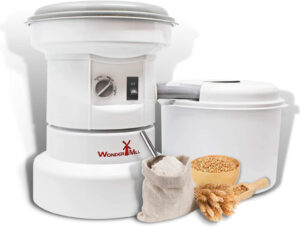
GrainMaster TurboChop Electric Mill
Experience lightning-fast milling with the TurboChop High Speed...
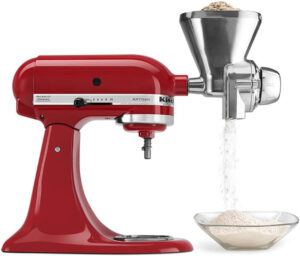
Grain Mill Mastery: KitchenAid KGM Attachment
Elevate your baking game with the KitchenAid KGM...
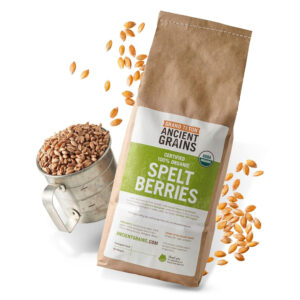
Nutrient-Packed Spelt Berries Supreme
Elevate your meals with our Supercharged Nutrient-Packed Spelt...
